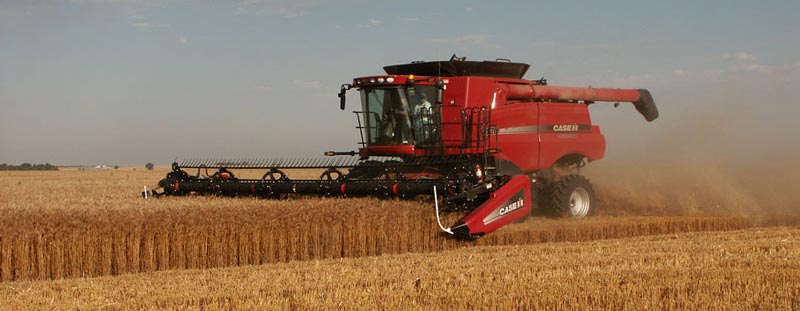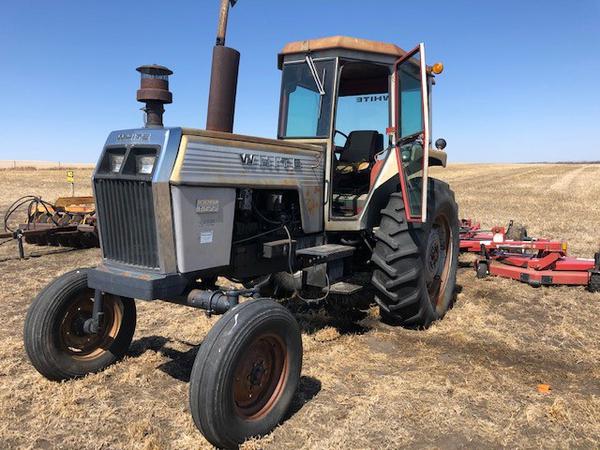Register an account with RME to store your favorite equipment and easily compare between units.
Register10 Harvest Safety Tips To Prevent Accidents On The Farm
When it comes to fall harvest, there’s a lot to be done in a short amount of time. Top that off with shorter days and colder weather, and you get a developed sense of urgency among farmers, which can lead to injury and death. Use these harvest safety tips to prepare accordingly for the season and keep friends and family safe on the farm.
Farmers, it’s important to begin pre-planning for harvest season right now to avoid accidents when you’re in the thick of busy days.

1. Come up with a family checklist.
The better you maintain your equipment and yard, the less likely things are to break down.
It’s when things break down and we lose time that we take unsafe shortcuts, which can lead to accidents.
To prevent your tractor and other important farm equipment from breaking down, make a list of what needs to be done to maintain them. Then, assign workers and family members to complete those tasks.
This way, nothing will be overlooked or forgotten, and you’ll prevent safety and technical hiccups.
You’ll also increase productivity.
2. Read up and refresh on manuals.
Now’s also a great time to review how to use machinery you haven’t used in a while. To be extra safe, run these manuals by your workers and family too, especially if they’re newer to the job.
3. Have an emergency plan.
Developing an emergency communication plan is essential. Most likely, you won’t need it – but if you do, you’ll be glad to have it.
These plans ensure that when there’s an emergency situation, everyone knows how to respond right away. You’ll save time, and potentially a life.
If someone isn’t back by 9 p.m., do you know what field they are in, which route they are on?
Once you develop your plan, make sure everyone is familiar with it.
4. Maintain the yard.
Remove tree limbs that are hanging low, and talk to electrical companies if you have heavy rains in your area.
Take care of details like these ahead of time to address any issues before you hit the field for harvesting.
5. Train anyone who is about to use equipment.
It’s easy to invite your neighbor over to hop on a tractor and help out with the farm chores, especially when time is tight.
But you shouldn’t let anyone on a tractor, or use any farm equipment, without at least some training.
A lack of training is dangerous not only for the inexperienced person – if you’re new to a job, you have a greater risk of injuring yourself – but for everyone else working, too.
6. Know where your young children are.
Keep children off of tractors and farm equipment, and enforce a rule to make sure they don’t run recklessly outside while you are working.
That being said, know where your children are before taking out machinery. Designate a safe play area, and make sure they aren’t hiding underneath the tractor.
7. If you feel fatigue, stop.
It’s easy to want to push on, even when you’re tired. But, if you’re fatigued, you’re more likely to take shortcuts and risk injuring yourself or others.
Don’t turn to extra cups of coffee or sugary caffeinated drinks either. It’s best to stick to a healthy diet and give your body the rest it needs, when it needs it.
8. Meet new lighting and marking requirements.
Lighting and marking requirements changed in November 2015, so now’s the time make sure that all of your harvesting equipment meets them.
9. Practice grain bin safety.
Harvesting, transportation and storing grain and silage can be hazardous. Freshen up on and share these grain bin safety tips to remain safe and prevent accidents.
10. Beware of machinery entanglements.
Machinery entanglements are the leading cause of injury and death on the farm. Do everything you can do prevent it – including guarding or shielding all moving parts on machinery, and keeping bystanders and children away.
You can help prevent accidents by staying organized and preparing ahead of time.





